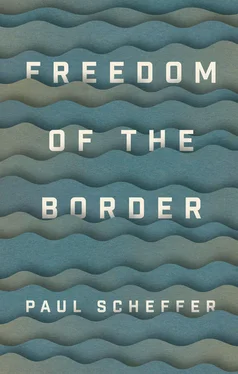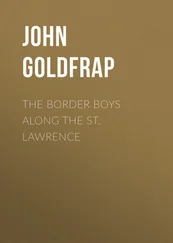1 1 Desiderius Erasmus, The Complaint of Peace; to which is added Antipolemus; or, The Plea of Reason, Religion and Humanity, Against War, transl. thought to be by T. Paynell, 1st American edn, Boston, and Burlington, NJ, D. Allinson, 1813, pp. 61–2 (text of The Complaint of Peace originally published as Querela Pacis, 1521).
2 2 Siep Stuurman, De uitvinding van de mensheid, Amsterdam, Bert Bakker, 2009, pp. 127ff.
3 3 Zeno of Citium, cited by Plutarch, ‘On the Fortune of Alexander’, in The Philosophie, Commonly Called, the Morals, Written by the Learned Philosopher, Plutarch of Chæronea. Translated Out of Greeke Into English, and Conferred with the Latine Translations, and the French, by Philemon Holland, London, J. Kirton, 1657, p. 1032.
4 4 See for example Martha Nussbaum, ‘Kant and Cosmopolitanism’, in Garret Brown and David Held (eds.), The Cosmopolitan Reader, London, Wiley, 2010. I have also drawn upon Pauline Kleingeld, ‘Wereldburgers in eigen land: Over kosmopolitisme en patriottisme’, lecture at the University of Groningen, 30 September 2005.
5 5 Marcus Aurelius, Meditations, transl. George Long, London, Blackie and Son, 1910, IV.4, pp. 34–5.
6 6 Ibid., VII.13, p. 85.
7 7 Ibid., X.15, p. 142.
8 8 Jan Papy et al. (eds.), Erasmus: Een portret in brieven, Amsterdam, Boom, 2003, pp. 152–3.
9 9 Margaret Mann Phillips, The ‘Adages’ of Erasmus: A Study with Translations, Cambridge, Cambridge University Press, 1964, p. 321.
10 10 Erasmus, Complaint of Peace, p. 112.
11 11 Ibid., p. 110.
12 12 Desiderius Erasmus, Against War, with an Introduction by J. W. Mackail, Boston, Merrymount Press, 1907, p. 55.
13 13 Erika Rummel (ed.), The Erasmus Reader, Toronto, University of Toronto Press, 1990, p. 325.
14 14 Immanuel Kant, Perpetual Peace: A Philosophical Essay, transl. M. Campbell Smith, London, George Allen & Unwin, 1903, p. 120 (originally published as Zum ewigen Frieden: Ein philosophischer Entwurf, Königsberg, 1795).
15 15 Ibid., p. 128.
16 16 Ibid., p. 137.
17 17 Immanuel Kant, The Critique of Judgement, transl. J. H. Bernard, 2nd edn., London, Macmillan, 1914, I. Book II, § 28, p. 128 (originally published as Kritik der Urteilskraft, Berlin, F. T. Lagarde und Friederich, 1790).
18 18 Immanuel Kant, Religion Within the Limits of Reason Alone, transl. Theodore M. Greene and Hoyt H. Hudson, London, Harper and Row, 1960, p. 40 (originally published as Die Religion innerhalb der Grenzen der bloßen Vernunft, Königsberg, 1793).
19 19 Ibid., p. 32.
20 20 Ibid., p. 121.
21 21 Ibid., p. 3.
22 22 Ibid., pp. 5–6.
23 23 Cited in Marc Crépon, Les géographies de l’esprit: Enquête sur la caractérisation des peuples de Leibniz à Hegel, Paris, Payot, 1996, p. 169.
24 24 Here I have taken a number of paragraphs from Paul Scheffer, Het land van aankomst, Amsterdam, De Bezige Bij, 2007, pp. 256–7; English edn, Immigrant Nations, transl. Liz Waters, Cambridge, Polity, 2011, pp. 188–90.
25 25 David Hume, ‘Of National Characters’, 1741, in David Hume, Essays, Moral, Political and Literary, London, Grant Richards, 1903, p. 213, n.1.
26 26 Montesquieu, The Complete Works of M. de Montesquieu Translated from the French, vol. I, ‘The Spirit of Laws’, ch. 4, Dublin, 1777, p. 298.
Cosmopolitanism is on many people’s lips these days, but might the meaning of this particular ideal be changing in the global village, with its worldwide means of communication? Were the Enlightenment thinkers right to believe that greater knowledge of others increases mutual concern? Or does more contact and mingling make conflicts between cultures all the more extreme? Does contact encourage openness to other cultures or does it evoke a longing for what we regard as our own?
Our moral sensitivity is altered by the ubiquity of news from all parts of the world. On the face of it this is a positive development, since we are more troubled than ever about the fate of victims of Ebola or a tsunami. At the same time, our concern is fleeting, coming and going with the news cycle. Who can truly open their mind to all the bad news that pours in daily? In most instances that continual stream of information, far from inviting us to feel at home in the world, creates a sense of dissociation.
Now that the world is growing smaller, cosmopolitanism needs to be rethought. What in the time of Erasmus and Kant was a distant prospect has become our tangible reality. Circumstances have changed profoundly. When humans were still discovering the world, the ideal of an open society required the removal of borders, but that same ideal may perhaps necessitate further reflection on borders now that the world is coming to us.
German philosopher Peter Sloterdijk goes so far as to speak of a ‘drama of globalization’. 1Unease is characteristic of modern times, as people feel themselves to be ‘homeless’ in a chaotic world. The accelerating turnover of people, goods and ideas is prompting a retreat. In our infatuation with mobility and our failure to appreciate that which is fixed, we have overlooked the fact that the social ties from which people derive protection are dissolving without new ties being created in their place.
Sloterdijk believes that every society exists by virtue of a boundary between inside and out. 2The question he asks is: where are we when we are in the world? How does a person make new spaces, that are shared with other people, habitable? All of history is the story of animated relationships, he writes. In his lengthy disquisitions on the subject of city walls he has argued convincingly that they did not serve merely defensive purposes. More than anything they were intended to create an animated inner space.
But what if it becomes impossible to find a space of our own? Where can we embed ourselves then? Posing these questions does not make Sloterdijk a nostalgic thinker yearning for the old certainties. He recognizes the weaknesses of earlier cultures, but he also pays heed to the disruptive effect of globalization in our own day. Under pressure from the expanding world market, another side of human life emerges: our longing for shelter and protection. How can we give that desire a contemporary interpretation? Even more importantly, how can we prevent it from taking an aggressive form?
A world in which the crossing of borders is a daily reality increases mutual dependency. A world in which distances are shrinking heightens the experience of diverse people existing together and living alongside each other. That experience engenders new forms of community and cooperation, but it also brings friction and conflict.
Here we come upon one shortcoming of cosmopolitanism, its tendency to underestimate the conflicts that accompany the coexistence of so many cultures and religions. In cities with many newcomers, we have seen how separation between different groups can for some time contribute to the avoidance of conflict. But a moment always comes when isolation no longer works and diverse ways of living come into contact.
At that point conflicts arise, which can be tempered only by an appeal to shared norms. This necessitates having people in positions of public authority who, for example, insist that modern society cannot work without freedom of religion as a rule that applies to all. Anyone who demands the right to pray to a god must accept a responsibility to defend the right to religious freedom for people with a different religion or none. Instead we see on all sides the temptation to limit this right. The shared norms needed in a time of border-crossing are being poorly maintained.
Now that the entire world has come to the city, cosmopolitanism might no longer begin with the accumulation of air miles but with taking a bus to the outer suburbs. Many of today’s world citizens have little knowledge of Rosengård in Malmö, Vénissieux in Lyon, Lozells in Birmingham or Slotervaart in Amsterdam. I know plenty of people who regard themselves as tolerant but who rarely leave the centre of their city and feel uninvolved with the welfare of its periphery.
Читать дальше












